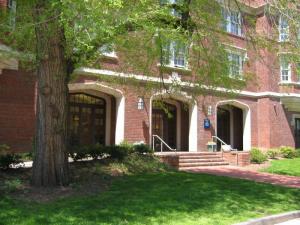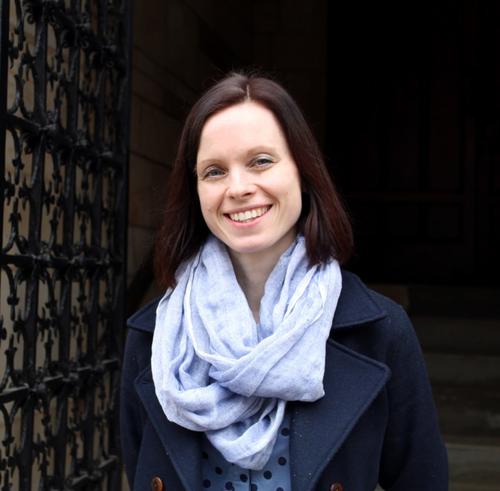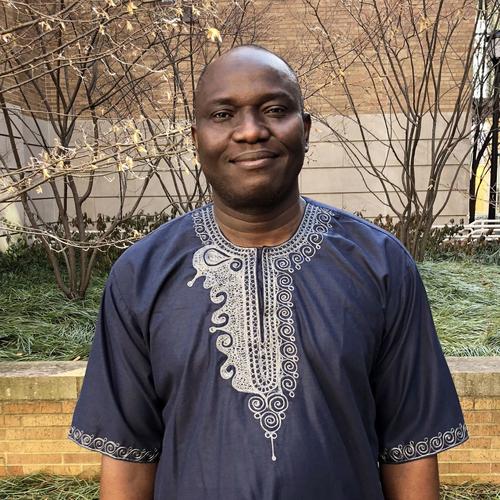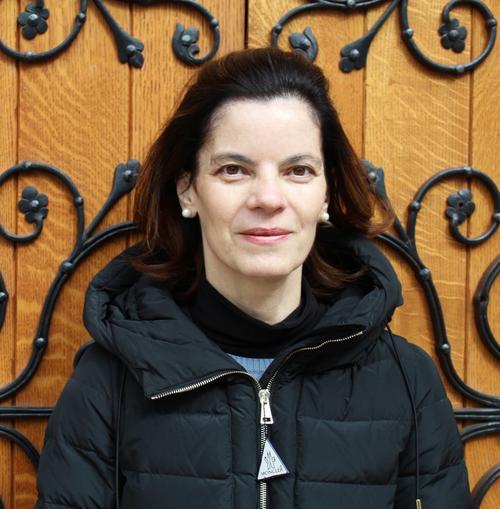
True to Yale’s mission as a liberal arts university, every undergraduate student is required to gain proficiency in a new language before graduating. Although Yale offers over 50 languages ranging from American Sign Language to Zulu, and the classes vary in size, level, and structure, the experience of taking a language class is shared universally by every student in Yale College, making it an essential component of a Yale education.
Of the students taking core-sequence language classes in the 2017-2018 academic year, 64 are enrolled in Yoruba, 182 are taking German, and 910 are registered in Spanish. In their offices around campus, three language instructors of those languages—Oluseye Adesola, senior lector II in Yoruba; Theresa Schenker, senior lector II in German; and Mercedes Carreras, senior lector I in Spanish and Portuguese—discussed the courses they teach and their views on language pedagogy.
Q: What inspired you to pursue a career in education?
TS: Becoming a teacher was always in the back of my mind. I come from a family of teachers: my dad was a teacher, my grandparents were teachers. I always worked with children and youth in my community in Germany, so this was always something I wanted to do. I started teaching when [was working toward] my Ph.D. in Michigan, so it’s been nine or ten years or so, and I really love it.
OA: I studied Yoruba in college in Nigeria. Just before I completed my master’s degree in the Yoruba language, some of my professors got interested in my work and they encouraged me to teach in the department. I saw it as a way to give back to the system that nurtured me. Then I came to Rutgers for my Ph.D. in Linguistics. When I finished, I got an offer to come and teach at Yale and, well, you can’t say no to Yale.
MC: When I was applying to college in Spain, I wanted to major in art history and my mother told me “Mercedes, you have to study law.” She told me that the only thing you can do with art history is to teach, and if you study law you have many other possibilities. Of course, here I am years later: a teacher! I got my Ph.D. in law and economics, and one day the head of my department said to me, “Mercedes, you have to teach.” I went home and asked, “Papa, what do I do?” My father was a professor at the medical school and he told me “do not panic.” And he gave me very good tips that I still use.

Theresa Schenker, photographed near her office at William L. Harkness Hall
Q: What is it like teaching language classes to non-native speakers at Yale?
OA: A non-native speaker is coming to the language as an adult with the linguistic knowledge of a kid. As the instructor, I have to get them to think in a different language, to become accustomed to the structure of a language which is different. You need to be patient. But it helps that they are so excited to learn the language. You don’t choose to learn your first language, but if you are a non-native speaker and you learn a new language, that means it’s by choice.
MC: For me there was a bit of a culture shock to get over. Everything was different; to start with, the classes here are very small. In Spain, I used to teach to first- and fifth-year students and each year I had a total of 1,500 students, only myself. And in a class of 500, who is going to raise their hand? No one! But American students have been taught to participate from the very beginning. I love when my students speak up and share their opinions.
TS: For non-native speakers, cultural education is just as important a component of a language class as grammar or syntax. It makes the language come alive, and even students who struggle with the language learning aspect a little bit can still get this cultural experience as well. I think it definitely helps that I am German, so I like to bring in my own stories and experiences. I like to bring in videos of different cultural concepts and ideas so that they can practice their listening skills but also get this cultural exposure.

Oluseye Adesola, photographed near his office at Rosenkranz Hall
Q: What unique perspective do you bring to your classroom?
TS: I love to bring technology into the classroom. One semester I found an app that allowed you to create your own animated video on the Internet and you could voice all of the characters and direct them. It was a really great way for the students to practice speaking German at home—they loved it. I also do a lot of telecollaborations to connect my students with students in Germany or even other German learners around the world. Classroom time is very limited and I want to give my students more opportunities to use the language outside the classroom and to motivate them to continue to improve.
OA: Because I am a linguist I have some experience that makes me especially equipped to teach non-native speakers. I can understand the principles of why they have issues with some obvious structures because they are coming from different backgrounds. For example, in English one says “Two books.” Yoruba flips it, “Book two.” My background prepares me to think about all of this and find an easy way to communicate it to them.
MC: I teach courses in legal and medical Spanish. I am a lawyer by training and a nurse by hobby. I think of my courses as bridge classes, which take students from the beginning language classes and hopefully move them forward into the more advanced classes in Spanish and Portuguese. In legal Spanish we talk about immigration law, but the class is so much more than that. In medical Spanish I am training pre-med students to talk both with their future colleagues and future patients. We talk a lot about ethics, about the situations of those who are not well off in our society, and about diversity in a very open and honest way.

Mercedes Carreras, photographed near Sheffield-Sterling-Strathcona Hall
Q: What are your goals when you step into the classroom?
TS: Yale requires all undergraduates to take up to three semesters of a language, but it makes me especially happy when I can get students to fall in love with the language and go beyond the language requirement. That’s how I know I have done a good job in the classroom, because they have enjoyed it and they are coming back.
OA: I want to help my students to improve in their competence and to enjoy learning the language. I don’t expect perfection, but I have a high expectation for my students. I expect them to come to class better than they were yesterday. If they come in ready to work hard, as many of them do for many semesters, their Yoruba language skills will be competitive. And we see that: we have had former students competing with native speakers for different roles in Nigeria.
MC: My goal for my students is for them to be happy—happy in the Aristotelian sense, to have a good memory of the university, to have a good memory of my class, and even to develop a passion for the subject that I teach.
Reported, written, and photographed by Leah Salovey for the FAS Dean’s Office